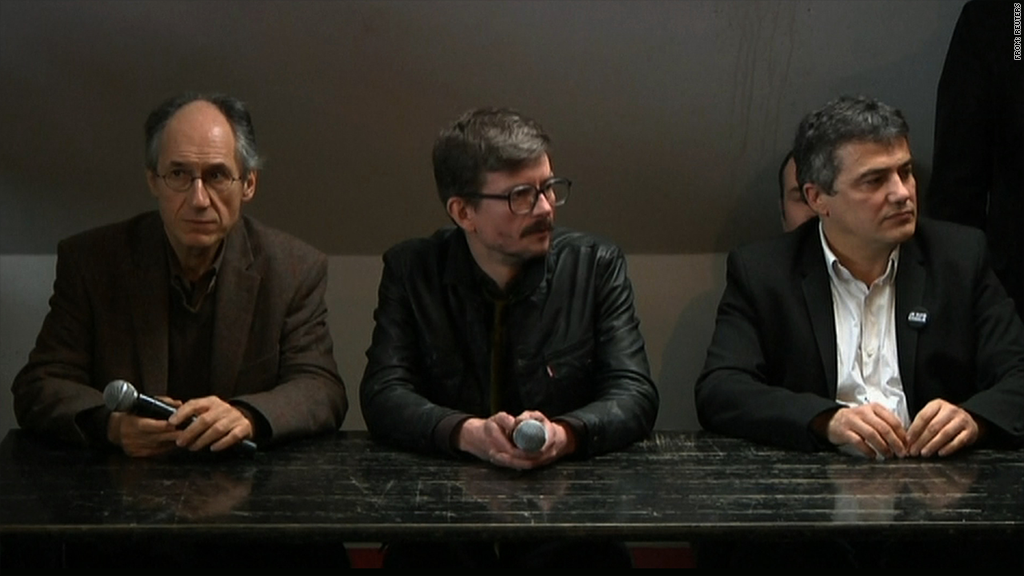
Days after falling victim to a brutal massacre, the staff of Charlie Hebdo has roared back. And political and media figures alike roared with approval.
The French satirical magazine unveiled its latest cover on Monday night, the first since last week's shooting. The cover features an image of the Prophet Mohammed holding a sign with the now-omnipresent rallying cry, "Je Suis Charlie."
Charlie Hebdo has a history of depicting the prophet in its cartoons, a serious taboo to some Muslims and possibly the motivation for the attack.
For many, the cover choice was a stroke of genius, an appropriate act of defiance.
The blogger Andrew Sullivan required only one word to sum up his reaction to the cover: "Magnifique."
"It's on!" said one-time Republican presidential candidate Herman Cain in a tweet that included a photo of the cover.
Arnold Schwarzenegger, who announced his intention to subscribe to Charlie Hebdo after the attack last week, said Tuesday that he "can't wait" to see how he's depicted in the magazine.
"I know you won't hold back," Schwarzenegger said.
News outlets have agonized over whether or not to show images of the prophet ever since the attack on the magazine's Paris office, which left 12 people dead. Many major news organizations, including CNN and the New York Times, decided not to show Charlie Hebdo's past Mohammed cartoons and have also not shown the cover of the new issue.
But others have republished the cover.
USA Today decided to use a photo of the latest cover both in the newspaper and online. Editor at large and media columnist Rem Rieder found it notable that the new Charlie Hebdo cover was "not vicious."
"It's quite a moving statement," Rieder said in a video posted on the newspaper's website.
Rieder explained that "ordinarily" USA Today would not publish images of Mohammed.
"But in this case, we decided the newsworthiness of the first cover of Charlie Hebdo since the awful events of last week really made it essential to do it," Rieder said. "It kind of outweighed other concerns."
The Guardian also showed the image, saying "its news value warrants publication." CBS News showed the cover, too, a week after an executive at the network said there was no explicit ban on the Mohammed cartoons but that producers had been instructed to exercise judgment.
Not everyone was impressed with the new cover.
A panel discussion published on The Guardian showcased a wide-range of reactions to Charlie Hebdo's latest depiction of Mohammed -- a reflection of the differing views evoked by the magazine itself.
Joseph Harker, the Guardian's assistant comment editor, questioned the wisdom of the cover choice, arguing that the caption -- "All is forgiven" -- seemed to be "aimed at Muslims in general."
"But why do Muslims need to be forgiven?" Harker said. "They have done nothing wrong. In claiming to be about forgiveness the cover therefore achieves the opposite, spreading guilt by association."
He added, "In affirming its 'right' to free speech, Charlie Hebdo has used a blunt instrument to smash apart a genuine moment of hope and togetherness. France will be the poorer for it."


